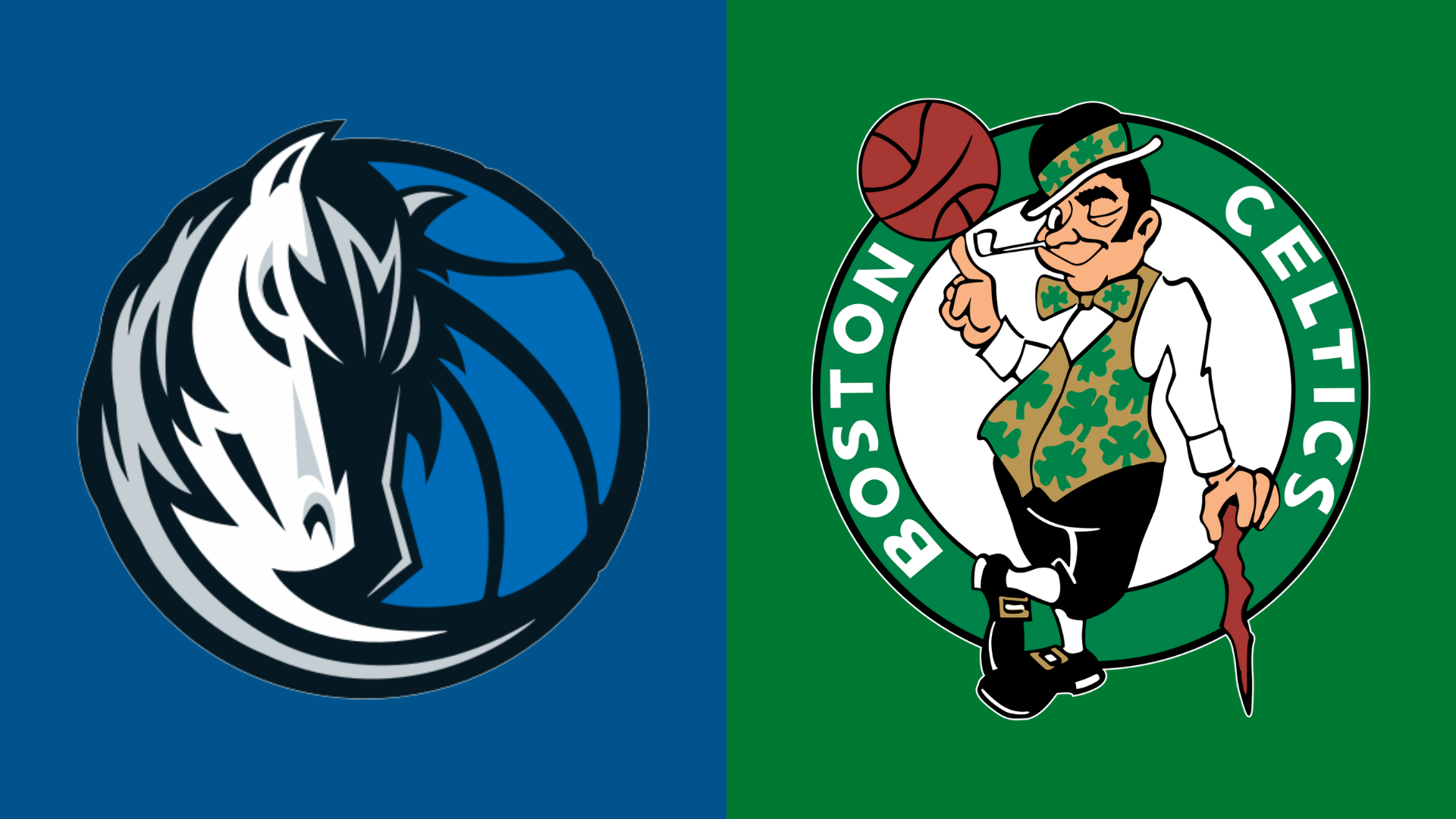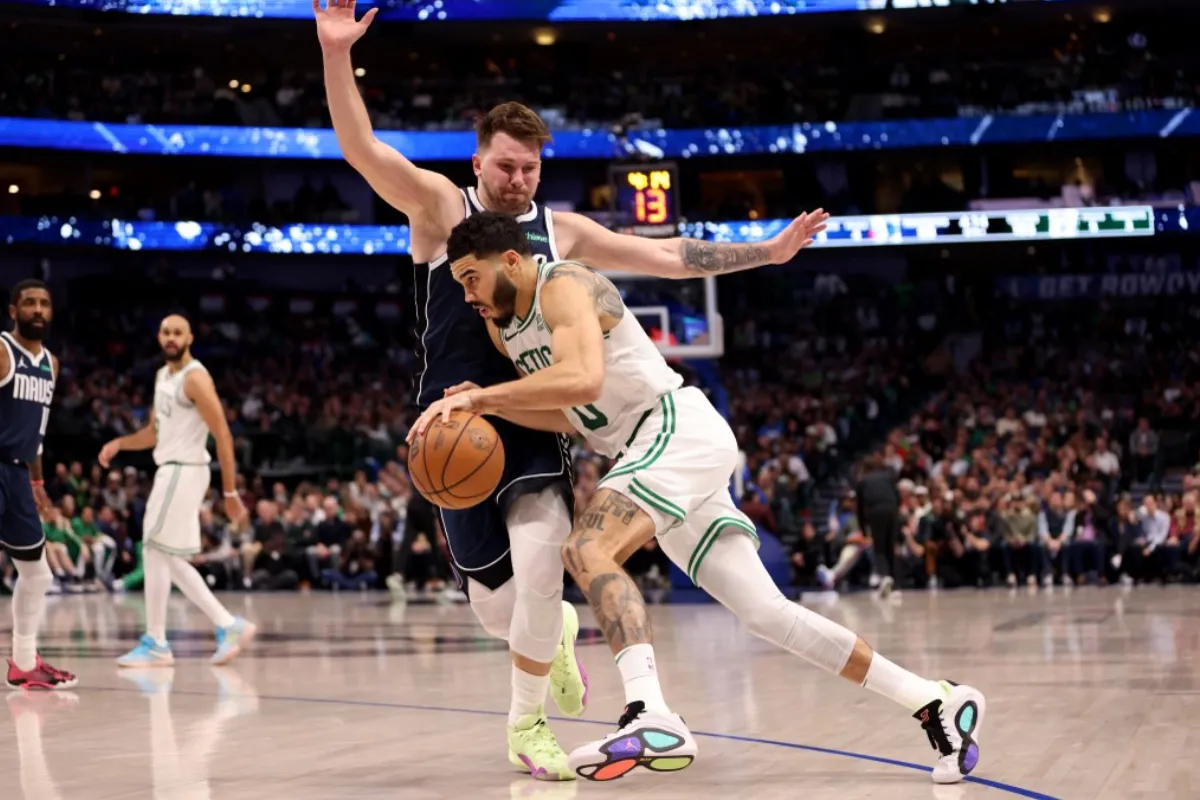Team Statistics: Mavs Vs Celtics

Mavs vs celtics – The Dallas Mavericks and Boston Celtics have both had impressive regular seasons and playoff runs, but their team statistics offer a detailed look at their strengths and weaknesses.
During the regular season, the Celtics led the league in defensive rating, allowing only 106.2 points per 100 possessions. They also ranked among the top teams in rebounding, with 52.2 rebounds per game. The Mavericks, on the other hand, were a top-10 offensive team, averaging 115.8 points per game. They also ranked among the league leaders in three-point shooting, with 36.4% of their shots coming from beyond the arc.
Shooting Percentages
The Celtics have a slight edge over the Mavericks in shooting percentages, with a 47.1% field goal percentage compared to the Mavericks’ 46.6%. The Celtics also shoot a better three-point percentage (37.9%) than the Mavericks (35.3%). However, the Mavericks have a slightly better free throw percentage (81.4%) than the Celtics (80.9%).
| Field Goal % | Three-Point % | Free Throw % | |
|---|---|---|---|
| Celtics | 47.1% | 37.9% | 80.9% |
| Mavericks | 46.6% | 35.3% | 81.4% |
Strengths and Weaknesses
The Celtics’ strengths lie in their defense and rebounding. They have a number of talented defenders, including Marcus Smart, Jaylen Brown, and Robert Williams III. They also have a deep bench, which allows them to keep fresh players on the court at all times. The Mavericks’ strengths lie in their offense and three-point shooting. They have a number of talented scorers, including Luka Dončić, Spencer Dinwiddie, and Christian Wood. They also have a number of good three-point shooters, which makes them a threat from beyond the arc.
Key Players

The Mavericks and Celtics have several key players who have contributed significantly to their teams’ success in the playoffs.
Dallas Mavericks, Mavs vs celtics
* Luka Doncic: The Slovenian sensation has been a force to be reckoned with in the playoffs, averaging 31.7 points, 9.8 rebounds, and 6.6 assists per game. He has led the Mavericks in scoring, rebounding, and assists in every playoff game this season.
* Spencer Dinwiddie: Dinwiddie has been a valuable addition to the Mavericks, providing a consistent scoring threat and playmaking ability. He is averaging 17.5 points and 5.1 assists per game in the playoffs.
* Dorian Finney-Smith: Finney-Smith is a versatile defender who can guard multiple positions. He is also a capable three-point shooter, averaging 37.5% from beyond the arc in the playoffs.
Boston Celtics
* Jayson Tatum: Tatum has emerged as a superstar in the playoffs, averaging 29.5 points, 7.3 rebounds, and 4.4 assists per game. He has led the Celtics in scoring in every playoff game this season.
* Jaylen Brown: Brown has been a reliable second option for the Celtics, averaging 23.1 points, 6.9 rebounds, and 3.6 assists per game in the playoffs.
* Marcus Smart: Smart is the Celtics’ defensive leader and is known for his toughness and hustle. He is also a capable scorer and playmaker, averaging 12.5 points and 5.9 assists per game in the playoffs.
Coaching Strategies
The coaching strategies employed by Jason Kidd and Joe Mazzulla have played a pivotal role in the success of the Dallas Mavericks and Boston Celtics, respectively. Kidd, a former NBA champion as a player, has implemented an offensive system that emphasizes ball movement, player movement, and three-point shooting, while Mazzulla, a first-time head coach, has instilled a defensive-minded approach that prioritizes communication, switching, and rebounding.
Offensive Strategies
- Kidd’s Mavericks: Kidd’s offensive scheme revolves around creating mismatches and exploiting the strengths of his players. He encourages his team to move the ball quickly and make quick decisions, often using pick-and-rolls and dribble handoffs to create scoring opportunities. The Mavericks are one of the league’s best three-point shooting teams, with Luka Doncic, Spencer Dinwiddie, and Dorian Finney-Smith all capable of knocking down shots from deep.
- Mazzulla’s Celtics: Mazzulla’s Celtics, on the other hand, are more deliberate in their offensive approach. They rely on ball movement and player movement to create open shots, often using high screens and off-ball cuts to get their players into advantageous positions. The Celtics are also a good three-point shooting team, but they are more balanced in their scoring, with Jayson Tatum, Jaylen Brown, and Marcus Smart all capable of putting up big numbers.
Defensive Strategies
- Kidd’s Mavericks: Kidd’s Mavericks play a zone defense that emphasizes communication and switching. They are willing to give up some open shots in order to protect the paint and prevent dribble penetration. The Mavericks are also one of the league’s best rebounding teams, which helps them to control the tempo of the game.
- Mazzulla’s Celtics: Mazzulla’s Celtics play a man-to-man defense that emphasizes communication and switching. They are willing to switch on all screens, which makes it difficult for opponents to create mismatches. The Celtics are also one of the league’s best rebounding teams, which helps them to control the tempo of the game.
Decision-Making
Both Kidd and Mazzulla have shown a willingness to make bold decisions during the playoffs. Kidd has not hesitated to bench players who are not performing well, and he has also been willing to make adjustments to his game plan based on the opposing team’s strengths and weaknesses. Mazzulla has also shown a willingness to make bold decisions, such as starting Robert Williams III in Game 7 of the Eastern Conference Finals against the Miami Heat.